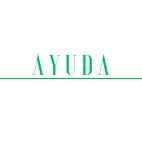Dogs hold a special place in our hearts as cherished members of the family, offering unwavering loyalty, companionship, and endless joy. As devoted caretakers of their well-being, providing our canine companions with the best possible care is paramount. One of the most crucial aspects of this care is ensuring they receive proper nutrition to thrive and lead fulfilling lives. In this comprehensive guide, we delve into the critical importance of selecting the optimal food for your dog, offering invaluable insights and guidance to help you navigate the vast array of options available.
Nutrition serves as the cornerstone of your dog’s overall health and vitality, playing a pivotal role in every aspect of their well-being. Just like humans, dogs require a balanced diet rich in essential nutrients to support their bodily functions, maintain optimal health, and ward off disease. A well-rounded diet fuels their energy, supports their growth and development, and fortifies their immune system against illness and infection. Conversely, a poor diet can lead to a myriad of health issues, ranging from obesity and digestive problems to skin conditions and nutritional deficiencies.
Choosing the right food for your dog involves careful consideration of various factors, including their age, breed, size, activity level, and any specific health concerns they may have. With countless options available on the market, from dry kibble and wet food to raw diets and specialized formulations, navigating the landscape of dog food can feel overwhelming. However, armed with knowledge and understanding, you can make informed decisions that prioritize your dog’s nutritional needs and promote their overall well-being.
By exploring the intricacies of canine nutrition and learning how to decipher food labels, you can ensure that you are selecting high-quality foods that provide the essential nutrients your dog requires. Additionally, understanding the unique dietary requirements of your furry friend and consulting with your veterinarian can help tailor their diet to meet their individual needs and preferences.
In the following sections, we will delve deeper into the key considerations when choosing dog food, explore the benefits of a balanced diet, and provide practical tips for transitioning to a new diet smoothly. Together, let’s embark on a journey to ensure that your beloved canine companion receives the best possible nutrition for a long, happy, and healthy life.
Why Proper Nutrition is Crucial for Your Dog’s Health
Proper nutrition plays a fundamental role in the health and well-being of dogs. Just like humans, dogs need a balanced diet to ensure proper body function and to prevent diseases. A poor diet can lead to a range of health problems, including obesity, allergies, digestive issues, and nutritional deficiencies. Therefore, it’s essential to choose high-quality foods that meet the specific nutritional needs of your dog.
How to Choose the Best Food for Your Dog
Important Considerations When Choosing Dog Food
When selecting the ideal food for your dog, it’s important to consider various factors, including age, size, activity level, and specific nutritional needs. Young, adult, and senior dogs have different nutritional requirements, and your dog’s diet should be adjusted according to the life stage they are in. Additionally, large breed dogs may have different needs than small or medium-sized dogs, and active dogs may need a diet with higher protein and fat content to sustain their activity level.
Types of Dog Foods Available on the Market
There are several types of dog foods available on the market, including dry kibble, wet food, canned food, semi-moist food, and raw diets. Each type of food has its advantages and disadvantages, and the choice will depend on your dog’s preferences, lifestyle, and veterinarian recommendations. Dry kibble is convenient and usually more economical, while canned and semi-moist foods may be more palatable for some dogs. Raw diets, on the other hand, are based on fresh, unprocessed ingredients, and many dog owners report health benefits when feeding their pets a raw diet.
Reading and Understanding Dog Food Labels
When choosing a food for your dog, it’s essential to read and understand the food labels. Dog food labels provide important information about ingredients, nutritional content, and feeding guidelines. Look for foods that list a high-quality protein source, such as meat or fish, as the first ingredient. Avoid foods that contain fillers, artificial colors, preservatives, and meat by-products, as these ingredients often offer little to no nutritional value.
Special Considerations for Dogs with Specific Dietary Needs
Some dogs may have specific dietary needs due to underlying health conditions, allergies, or food sensitivities. If your dog has a medical condition that requires a special diet, consult your veterinarian for recommendations on the most suitable type of food to meet their needs. Additionally, if your dog has allergies or food sensitivities, opt for foods that are formulated to avoid common ingredients that may trigger an allergic reaction.
Benefits of a Balanced Diet for Dogs
A balanced diet provides a range of benefits for your dog’s health. Here are some of the key benefits:
- Digestive Health: High-quality foods formulated with easily digestible ingredients promote healthy digestion and help prevent gastrointestinal issues such as diarrhea and constipation.
- Healthy Body Weight: A balanced diet helps maintain a healthy body weight in dogs, preventing obesity, which can lead to a range of health problems including diabetes, heart disease, and joint issues.
- Healthy Skin and Coat: Foods rich in omega-3 and omega-6 fatty acids, such as fish and vegetable oils, promote healthy skin and a shiny, lustrous coat in dogs.
- Strengthened Immune System: A balanced diet provides the essential nutrients needed to strengthen your dog’s immune system, helping to protect them against diseases and infections.
- Dental Health: Foods formulated to promote dental health, such as dry kibble and dental treats, help prevent plaque and tartar buildup, reducing the risk of periodontal disease in dogs.
- Longevity: A healthy and balanced diet can increase your dog’s longevity, providing them with the nutrients needed for a long and happy life.
Tips for a Smooth Transition to a New Diet
If you decide to change your dog’s diet, it’s important to transition gradually to avoid digestive issues. Here are some tips for a smooth transition:
- Introduce the New Food Gradually: Mix the new food with your dog’s old food in increasing proportions over a week or more until they are fully accustomed to the new diet.
- Monitor for Signs of Digestive Discomfort: Watch for signs of digestive discomfort, such as vomiting, diarrhea, or loss of appetite, and adjust the transition as needed.
- Offer Small, Frequent Meals: Offer several small meals throughout the day, rather than one or two large meals, to aid digestion.
- Stay Consistent: Once you have transitioned to the new diet, stay consistent and avoid frequent changes, as this can cause digestive stress in sensitive dogs.
Conclusion
Choosing the best food for your dog is one of the most important decisions you can make to ensure the health and well-being of your pet. A balanced diet, formulated with high-quality ingredients and tailored to your dog’s specific needs, can help them live a long, happy, and healthy life.
By considering your dog’s individual needs, such as age, size, activity level, and health conditions, you can make informed choices about the type of food that is most suitable for them. Additionally, by reading and understanding food labels and consulting with your veterinarian, you can ensure that you are providing your dog with a nutritious and balanced diet.
Always remember to make changes to your dog’s diet gradually and monitor for any signs of digestive discomfort during the transition process. With care and attention, you can provide your dog with the nutrition they need for a long and healthy life.
If you have any questions or concerns about your dog’s diet, don’t hesitate to reach out to your veterinarian for additional guidance.
Frequently Asked Questions
- What is the best diet for senior dogs? The best diet for senior dogs typically includes lower calories to prevent weight gain, increased fiber for digestive health, and joint-supporting nutrients such as glucosamine and chondroitin.
- How can I determine my dog’s specific nutritional needs? Your dog’s specific nutritional needs depend on factors like age, breed, size, activity level, and any existing health conditions. Consult with your veterinarian for personalized recommendations.
- What are the ingredients to avoid in dog foods? Avoid dog foods containing fillers, artificial colors, preservatives, and low-quality meat by-products. Opt for foods with named protein sources and wholesome ingredients.
- How often should I feed my dog? The feeding frequency depends on your dog’s age, size, and activity level. Typically, adult dogs are fed twice daily, while puppies may require more frequent meals.
- Can I prepare homemade food for my dog? Homemade dog food can be an option but requires careful planning to ensure balanced nutrition. Consult with a veterinary nutritionist to create a balanced homemade diet for your dog.
- What is the difference between dry kibble and wet food? Dry kibble is convenient, has a longer shelf life, and promotes dental health. Wet food is more palatable and provides additional moisture, making it suitable for dogs with dental issues or picky eaters.
- How can I tell if my dog is eating enough? Monitor your dog’s weight, energy levels, and overall appearance. Consult with your veterinarian if you notice significant changes in appetite or weight.
- What are the signs that my dog is not getting enough nutrients? Signs of nutrient deficiency may include dull coat, lethargy, poor appetite, digestive issues, and weight loss. Consult with your veterinarian for proper diagnosis and treatment.
- Are dietary supplements necessary for dogs? Dietary supplements may be necessary for dogs with specific health conditions or nutrient deficiencies. However, it’s essential to consult with your veterinarian before adding supplements to your dog’s diet.
- How can I change my dog’s diet if they have food sensitivities? Transition your dog to a new diet gradually, selecting foods with novel protein and carbohydrate sources. Monitor for signs of improvement or adverse reactions.
- Can I give my dog table scraps? Table scraps should be given sparingly, as they may not provide balanced nutrition and can lead to obesity and digestive issues. Avoid feeding foods that are toxic to dogs.
- What are the benefits of a raw diet for dogs? A raw diet may provide benefits such as improved digestion, healthier coat and skin, and increased energy levels. However, it requires careful handling to prevent bacterial contamination.
- How should I store dog food? Store dry dog food in a cool, dry place in an airtight container to maintain freshness and prevent contamination. Follow the manufacturer’s recommendations for storage.
- How much should I feed my puppy? Puppies should be fed according to their age, weight, and breed size. Follow feeding guidelines provided by the food manufacturer or consult with your veterinarian for personalized recommendations.
- Are there foods that help prevent specific health problems in dogs? Certain foods may help prevent specific health issues in dogs, such as dental treats for dental health or foods rich in omega-3 fatty acids for joint health.
- How can I help my dog lose weight? To help your dog lose weight, reduce their calorie intake, increase exercise, and offer low-calorie treats. Consult with your veterinarian for a tailored weight loss plan.

Juan López, a pet enthusiast since youth, shares his expertise and love for animals on his blog. With practical tips and profound insights, he guides readers toward a happier life alongside their furry companions.




